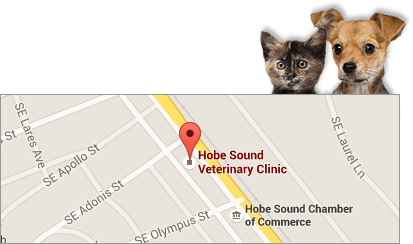Acetaminophen is an extremely common pain reliever and can easily be obtained over the counter. It’s probably in your home right now! Acetaminophen can be toxic to our animal companions, so it’s important to be aware of the danger so that you can take quick action in a worst-case scenario.
In this article from your local veterinarian, you’ll find out why acetaminophen poisoning occurs, what it looks like, and how to deal with it and prevent the problem in the first place.
How Does Acetaminophen Poisoning Occur?
Generally, pets are poisoned by acetaminophen in two ways: by gaining access to a medication that contains it and ingesting that medication, or by being unintentionally overdosed when an owner gives their pet acetaminophen in an attempt to help relieve pain.
Dogs are more commonly diagnosed with acetaminophen poisoning than cats, but our feline friends are at risk nonetheless. The smaller the pet, the greater the danger, since the amount of acetaminophen ingested reaches toxic levels faster in a smaller animal.
What Are The Symptoms?
The symptoms of acetaminophen poisoning will usually manifest in a pet a few hours after ingestion. Symptoms include rapid or labored breathing, nausea, vomiting, abdominal pain, swelling around the face, neck, or limbs, discolored gums, dark urine, jaundice, and—if treatment isn’t started quickly—coma or death.
What Do I Do if My Pet Ingests Acetaminophen?
If you know or even suspect that your pet has ingested a medication containing acetaminophen, take them to the nearest veterinary emergency room as soon as possible. The earlier treatment is started, the better chance your pet has of making a full recovery. Our veterinary diagnostic services can help determine the severity of the poisoning and guide treatment.
Possible steps that a veterinary team might take to treat a pet suffering from acetaminophen poisoning include induced vomiting, flushing of the stomach, and the administration of activated charcoal to absorb the remaining toxin in the stomach. In severe cases, blood transfusions might be needed. Intravenous fluid therapy may also be necessary to keep your pet hydrated and maintain their electrolyte levels. After recovery, an extended hospital stay might be needed to assess your pet’s progress.
How Can I Prevent Poisoning?
Clearly, preventing acetaminophen poisoning in the first place is your best option. Do this by keeping any and all medications out of your pet’s reach, and never give your pet a painkiller meant for humans. For more tips on keeping your pet safe, read our article on 4 Ways to Keep Your Pet Safe During the Holidays.
Our Tips for Acetaminophen Poisoning and Your Pet in 2024
How quickly does acetaminophen get absorbed into a pet’s system?
Acetaminophen is rapidly absorbed into a pet’s system, typically within 30 minutes to two hours after ingestion. Once ingested, the medication quickly enters the bloodstream, leading to toxic effects that can cause severe health issues. Early symptoms, such as rapid breathing, vomiting, and swelling, can appear within a few hours. Immediate veterinary intervention is crucial to mitigate the effects and prevent serious outcomes like organ failure or death. Prompt treatment, including induced vomiting and activated charcoal, can significantly improve the chances of recovery.
What are the long-term effects on liver and kidney function in pets that survive acetaminophen poisoning?
Pets that survive acetaminophen poisoning may suffer from long-term effects on liver and kidney function. The liver, being the primary organ for detoxification, can sustain significant damage, leading to chronic liver disease or failure. Symptoms may include jaundice, lethargy, and poor appetite. Kidney damage can also occur, potentially resulting in chronic kidney disease, which affects the pet’s ability to filter waste from the blood effectively. Long-term management may involve regular veterinary check-ups, blood tests, a specialized diet, and medications to support liver and kidney function, ensuring a better quality of life for the affected pet.
Are there any safe alternatives to acetaminophen that pet owners can use for pain relief in their animals?
Safe alternatives to acetaminophen for pain relief in pets include medications prescribed by veterinarians, such as nonsteroidal anti-inflammatory drugs (NSAIDs) specifically formulated for animals, like carprofen, meloxicam, or deracoxib. Additionally, veterinarians might recommend gabapentin for nerve pain or joint supplements containing glucosamine and chondroitin for arthritis management. It’s crucial to consult a veterinarian before administering any medication to ensure the appropriate type and dosage for the pet’s specific condition. Over-the-counter human medications should never be given without veterinary guidance due to potential toxicity.
What specific diagnostic tests are used to confirm acetaminophen poisoning in pets?
To confirm acetaminophen poisoning in pets, veterinarians use several diagnostic tests. Blood tests are crucial to measure methemoglobin levels, which indicate oxidative damage to red blood cells, and to assess liver and kidney function by checking liver enzymes and kidney markers. A complete blood count (CBC) can identify anemia and other abnormalities. Urinalysis helps detect hematuria and other renal issues. Additionally, imaging studies like X-rays or ultrasounds may be performed to evaluate internal organ damage. These tests collectively help determine the severity of poisoning and guide appropriate treatment.
Are there any at-home first aid measures that owners can take while en route to the veterinary emergency room?
While en route to the veterinary emergency room, owners can administer at-home first aid measures to help a pet suspected of acetaminophen poisoning. Inducing vomiting with hydrogen peroxide (1 teaspoon per 5 pounds of body weight, not exceeding 3 teaspoons) can help expel the ingested toxin if the ingestion was recent, but only if advised by a veterinarian. Activated charcoal can also be given if available, to absorb any remaining acetaminophen in the stomach. Keeping the pet calm and transporting them quickly to the vet is crucial for effective treatment and recovery. Always consult a veterinarian before attempting any first aid.
Does your pet need an appointment? Call us, your local vet clinic in Hobe Sound, FL, today!




